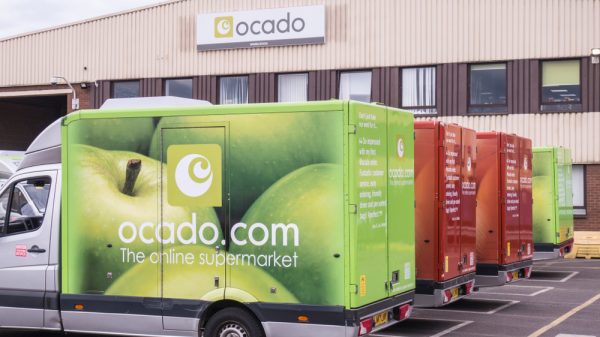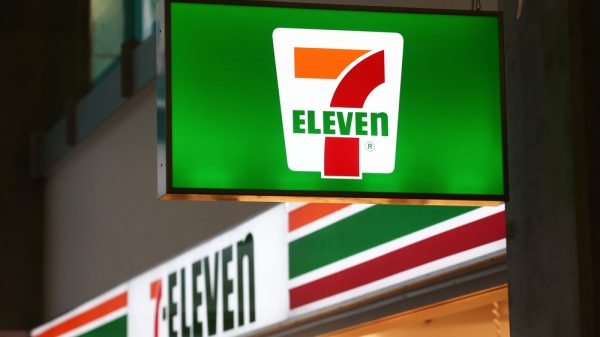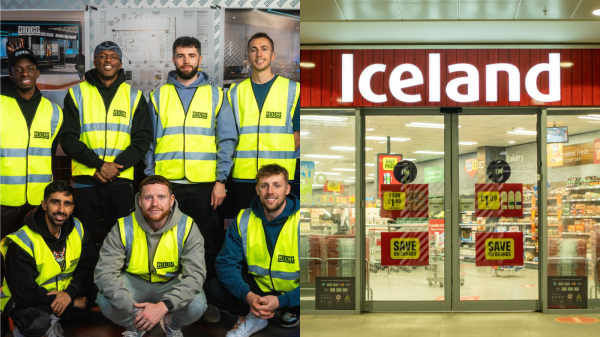“Every year, over seven million tonnes of food and drink is thrown away in the UK – the equivalent of one million lorries’ worth of food” says Approved Food managing director Andy Needham.
Based in Sheffield, the online clearance supermarket has been on a mission to tackle food waste for the past 14 years, offering good products for low prices, helping customers save cash and protect the
environment at the same time.”Using products beyond their best before date is an extremely effective way of saving money on the cost of food,” says Needham, who is laser-focused on the importance of educating consumers on the impact of food waste.
Cutting waste and ‘problem stock’
Food waste in the supply chain is a real problem. Globally, up to 30% of total food produced is lost or wasted, which accounts for around 10% of total man-made greenhouse gas (GHG) emissions.
Recent research from climate action NGO Wrap in its updated Food Waste Roadmap showed that the last two years have seen food waste spike, with the UK’s exit from the EU and disruption to the supply chain caused by the impact of the pandemic contributing towards the 100,000-tonne surge in food waste in the UK.
“Food won’t last forever, but around 80% of what is thrown away is perfectly edible,” Needham says.
“But depending on what category it’s in, it can be perfectly good for anything up to 12 – 18 months, if not longer. Best before dates are just arbitrary really – I can remember the days when there were no best before dates on products. Although we try not to buy too much stock that’s already gone far past its best before date.”
Subscribe to Grocery Gazette for free
Sign up here to get the latest grocery and food news each morning
Needham explains that Approved Food buys ‘problem stock’ from manufacturers, suppliers, and distributors. This product is primarily driven by short best before dates, changes in packaging and design or cancelled orders.
“We try to get our stock into people’s bellies rather than into waste streams, anabolic digestion, or landfill. It’s really about cutting out waste in the supply chain,” he said.
Scaling up the business
Just before Covid struck, the wholesale side of the business was in Leeds, with the internet business was down in Sheffield. The two sites were combined last year, in a move which has seen sales increase by 35% year-on-year.
“The efficiencies of working and everything we’ve been improving that all the time as well. We’ve seen growth and we’ll no doubt continue to grow even more next year,” he said.
“The cost-of-living side of things is only just starting to take root and we’ve already seen a lot more activity and new customers. The first half of next year is going to get very uncomfortable for a lot of people unfortunately.”
Educating the public
One of the things that Approved Food have been trying to do over recent years is educate people around best-before dates, specifically the difference from use-by dates.
“There are still millions of people who would throw away perfectly good food that is still in date,” Needham commented.
“Over the years, we’ve produced loads of press releases talking about just that.
“We’re currently in the final stages of producing an illustrated cartoon Children’s book which talks about food waste, sustainability, and best-before-dates.
“We want to get education out there to young kids, so the education side is always paramount.”
Crucially, the key difference with use-by-dates is that they offer potential health risks, as its illegal to market and sell products past the use-by-date for any retailer.
“Best-before-dates are just advisory. But the language that is used is out-of-date and it just adds confusion,” Andy said.
Relationship with suppliers
While Approved Food was first established over 60 years ago, it was only until it was bought by Surplus Group 20 years ago that it was introduced to its direct-to-consumer division.
“We’ve been around a long time, and we’ve got a lot of long-standing relationships,” Andy Needham said, commenting on their relationship with suppliers.
“People trust us. We do what we say we’re going to do – we pay our bills on time and make necessary repairs where we can, which builds confidence in suppliers.
“We’ve got a lot of suppliers who deal with us exclusively, which is fantastic.”
On their website, they offer over 7,000 products at any moment in time. “But they’re changing at the rate of 150 – 200 a day,” Needham says.
“You’ll find a page called ‘popular products’ where you’ll often see savings of up to 75%, but it varies depending on the product.
“The supply side has been extremely badly affected, and Ukraine is mentioned as one of the main reasons.
“Ukraine was the biggest manufacturer of sunflower oil and wheat in Europe. When you start looking at the number of products that wheat goes into, it’s a huge number.
“Even things like confectionery. Glucose is made from wheat, and sugar is the main constituent of a jelly or hard-boiled sweet, so there have been massive impacts on that side.
“We’re in a very economically turbulent world. The current level of inflation for food and drink – I’ve never seen anything like it.
“In times gone by, you might see a 2.5% or 3% price increase – but recently I’ve been seeing 35% to 40% price increases.”
Approved Food have “never” set out to be the cheapest discounter, as there will seemingly always be other retailers offering more competitive prices.
However, with the buying power they have, Approved has have a broad range of products on offer as they have been diversifying their portfolio over recent years.
“We sell a lot of products that are strictly food, but we also sell household goods, pet products, and beauty products. Everything we sell is consumable in the home.”
As the UK grocery market is so enormous, Approved Food is “just another tiny cog in a large machine,” Andy says.
But considering how much waste there is the overall food chain, the online clearance supermarket will always be banging the drum about its mission to eliminate food waste.
“We are so wasteful with our resources not only as a country, but as a planet. One of the things we’re trying to do is make a small impact and stop as much waste as possible from being created.
“At our current rate, future generations won’t have the necessary resources because we’ve wasted them. It’s horrendous what is happening.”









